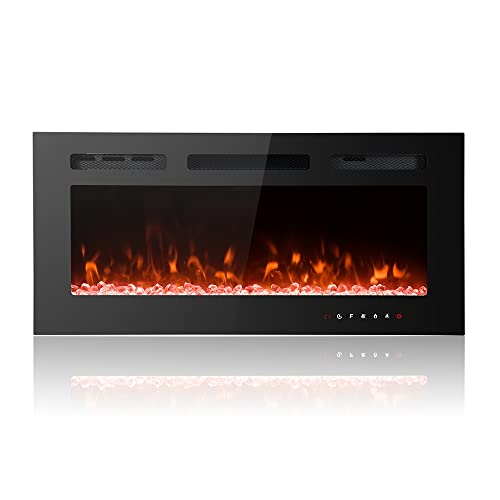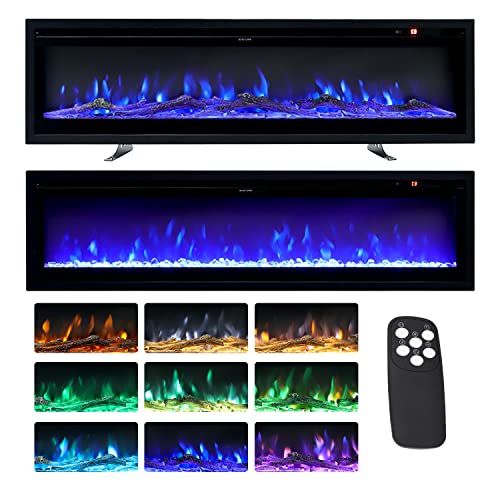Nine Things That Your Parent Taught You About Wood Heater Stove
Anitra Brumbaug…
0
8
01.04 00:14
 Proper Use and Maintenance of a Wood Heater Stove
Proper Use and Maintenance of a Wood Heater Stove A wood stove is a warm and cozy space to warm up and also provide warmth to a whole house. Certain stoves emit harmful gases like creosote which can be dangerous for health and property.
A wood stove is a warm and cozy space to warm up and also provide warmth to a whole house. Certain stoves emit harmful gases like creosote which can be dangerous for health and property.A proper care for these stoves is essential. A few important factors to consider include: avoiding overheating the room making a mess of the fire, and using appropriately dried firewood.
Fuel
Wood stoves burn a range of fuel types that include dry wood as well as manufactured solid fuels, such as briquettes and fire logs. These cleaner burning alternatives are healthier and more eco-friendly than traditional household coal or wet wood. However, they do still emit gasses and smoke, and require regular maintenance to keep them working at their best.
Make sure you read the manufacturer's guidelines prior to purchasing or using any kind of fuel. Make sure it's the right one for your stove. Incorrect fuel could damage your chimney and stove and cause costly repairs or voiding the warranty. Utilizing a fuel that has not been approved may be illegal, especially in areas that control smoke. Look for the "Ready to Burn" logo. This indicates that the fuel is within sulphur limits and smoke emission limits and is sold legally for domestic use. The logo is typically displayed on the packaging or alongside the name of the brand and price.
Fuels that are suitable for burning should be seasoned or kiln dried to reduce moisture content. This will improve the heat output and efficiency of combustion. The kind of wood you choose will also depend on your heating requirements. Softwoods like pine and spruce are excellent value for money, however hardwoods such as oak and beech generate more hot embers, and they do so over a longer time. Fruitwoods such as cherry and apple can not only be used to heat the home, but also add a pleasant scent.
If you own an appliance that runs on multiple fuels, you may be interested in a mixed fuel fire. Combining Smokeless Briquettes with wood will aid in keeping the flames going for longer and keep your home warm. Briquettes can be used as a backup and also help prevent a chimney fire by keeping the air moving.
A well-maintained stove will create more heat, use less fuel and create less harmful particles. If you own an oil or gas-fired wood stove, ensure it is installed by an approved installer (on a competent person scheme like HETAS, APHC, BESCA, Certsure or NAPIT). A well-maintained appliance will be more economical to run and will safeguard your health and the environment by preventing harmful emissions.
Design
The design of wood stoves is an important aspect to consider when considering them as a primary or supplementary heating source. Unwanted byproducts of combustion, like carbon monoxide and smoke can be harmful to the environment and health. The key to reducing the emission of these gases is to ensure proper operation and a well-planned design.
Modern wood stoves are much more environmentally green than older models. All stoves certified by the EPA meet strict emission and energy efficiency standards which maximize the amount of heat they generate. You can verify whether a stove is certified by looking for a metal EPA label on the back of the stove or by checking the EPA database. Visiting local hearth products retailers who are knowledgeable about the performance of their products is an excellent way to find out more about corner wood burner stoves and which size and capacity might be most suitable for your space.
Controlling the flow of air through the stove is an essential element of EPA emission regulations. The stove's firebox is surrounded by a wall of fireproof materials, and air vents are located in the walls to provide controlled airflow. Controlling airflow is vital to ensure that the combustion is efficient and emissions are minimized.
A lot of modern stoves come with baffles that increase the time the fire burns, reducing the amount of gas and smoke that can cause harm. Certain wood stoves employ catalyst converters to decrease NOx emissions. This type of system is a little more expensive and is usually only found in top-end wood stoves.
Stoves also employ different kinds of air control systems to regulate the air flow through the stove. Most wood stoves have the basic passive air supply and require that the owner (you) manage the stove in a way that allows the best performance. Some wood stoves also come with active air sources, which are controlled by sensors that monitor the combustion process and adjust the supply of air according to the needs.
Wood stoves are a great alternative to heating homes in remote areas or who are not connected to the electricity grid. If you don't have a backup source of heating in the event of an outage, or if there is a snowstorm, then a wood stove shouldn't be your only option to warm your home.
Heat output
Many wood stoves are advertised with an output of heat at the peak in BTUs. This is misleading, however, as the actual capacity of the wood stove is dependent on a number of factors like the size of the room as well as the degree of insulation.
The climate of the area can also influence heat requirements. To maintain comfort, colder regions need stoves that have higher BTU ratings.
The type of wood you use and the frequency you refill your fireplace are additional factors that influence heat production. Dry, seasoned firewood generates more heat than fresh cut and wet logs. The use of a stove fan can also help move the heat generated by the wood burner into the room, rather than having the hot air rise up.
It is important to remember that the highest output of a wood heater Stove (infozillon.com) should not be reached frequently as continuous high firing causes damage to the stove's interior and may cause carbon monoxide to leak into the home.
Regular refueling can also enhance the efficiency of the fireplace. When adding a log make sure it's not too large and then place it on the embers glowing so that it does not touch the walls of the stove or the glass pane. Add smaller logs more frequently instead of taking too long between additions.
High efficiency stoves are designed to provide a higher heat output with the same amount fuel. This is accomplished by prewarming combustion air, and by incorporating other features into the design. These stoves typically produce less smoke, toxins, and carbon monoxide than older models.
Some homeowners also choose to install a back boiler stove as part of their heating system. This uses the heat generated by the wood-burning stove to warm water in a hot water tank or central heating system, allowing the heat to be distributed throughout a home. This is a cost-effective and cost-effective method of heating homes. However, the installation process can take quite a long time. This method requires a flue that is not already installed and the energy required to run a boiler will increase the total cost.
Safety
Wood stoves and fireplaces can be a convenient and attractive method of heating your home. However, they're not without their risks. Sparks and embers can fly out of a flame and ignite carpeting or furniture, and a hot chimney can lead to fire damage to the structure of your house. The dangers can be reduced by maintaining and using a wood-burning fireplace.
cheap wood burner-burning stoves need to be checked and maintained regularly to ensure they are secure and in good condition. This includes examining the flue and chimney for signs of rust and wear and having them cleaned at least once a year. The chimney should also be checked at least once a year for creosote buildup. This is highly flammable and can cause chimney fires.
When buying a wood-burning fireplace make sure you choose one that has been endorsed by Underwriters Laboratories or another recognized testing laboratory. This will guarantee that the stove has been constructed to meet federal safety standards, and is designed to allow proper venting. You should also examine the hinges, legs and grates on a stove to ensure they are in good working order and securely secured to the floor.
If you choose to install a wood stove in your cabin, ensure that the floor beneath it is insulated and non-combustible. You may also want to lay a layer of non-combustible floor tile over the flooring you have, particularly in the case of an old mobile home with flooring that is combustible.
Always burn only seasoned, dry hardwoods. Wood that is damp and green produces excessive smoke and creosote, an ignitable byproduct that could build up in your chimney and release harmful chemicals into your home. Do not burn cardboard, paper, trash or any other combustibles on your wood stove, since they could release dangerous fumes and could not burn completely.
Don't "over-fire" your wood stove, i.e. create a larger fire than your stove is capable of handling. Over-fired stoves can result in flames leaving the combustion chamber, causing damage to the chimney connector, the stove and the chimney itself, as well as burning other combustible materials within your home. Make sure the fire is completely snuffed out prior to leaving your cabin or retiring to the bed. Smoke and carbon monoxide detectors must be working throughout the day.









